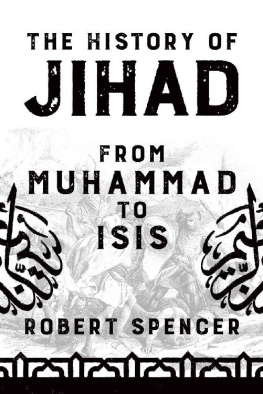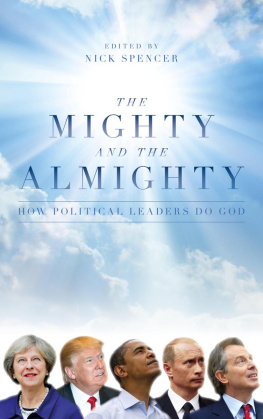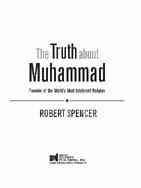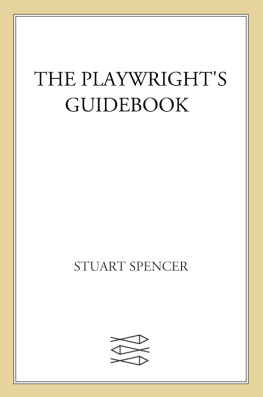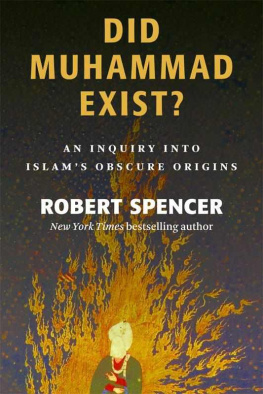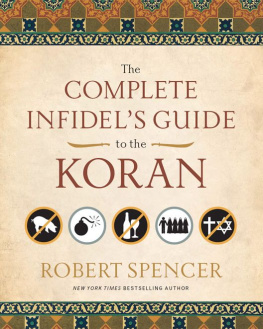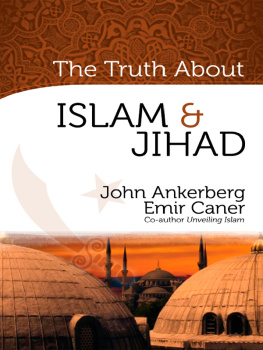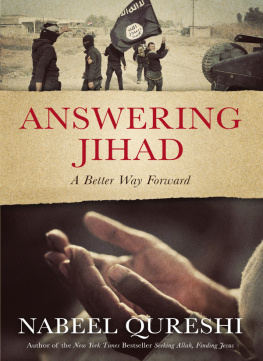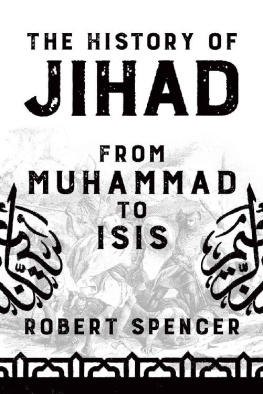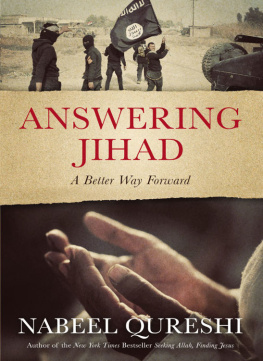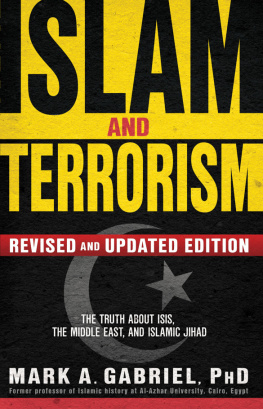ADVANCE PRAISE FOR
THE HISTORY OF
J IHAD
Robert Spencer is one of my heroes. He has once again produced an invaluable and much-needed book. Want to read the truth about Islam? Read this book. It depicts the terrible fate of the hundreds of millions of men, women and children who, from the seventh century until today, were massacred or enslaved by Islam. It is a fate that awaits us all if we are not vigilant.
Geert Wilders, member of Parliament in the Netherlands and
leader of the Dutch Party for Freedom (PVV)
From the first Arab-Islamic empire of the mid-seventh century to the fall of the Ottoman Empire, the story of Islam has been the story of the rise and fall of universal empires and, no less importantly, of never quiescent imperialist dreams. In this tour de force , Robert Spencer narrates the transformation of the concept of jihad, exertion in the path of Allah, from a rallying cry for the prophet Muhammads followers into a supreme religious duty and the primary vehicle for the expansion of Islam throughout the ages. A must-read for anyone seeking to understand the roots of the Manichean struggle between East and West and the nature of the threat confronted by the West today.
Efraim Karsh, author of Islamic Imperialism: A History
Spencer argues, in brief, There has always been, with virtually no interruption, jihad. Painstakingly, he documents in this important study how aggressive war on behalf of Islam has, for fourteen centuries and still now, befouled Muslim life. He hopes his study will awaken potential victims of jihad, but will theywill welisten to his warning? Much hangs in the balance.
D aniel Pipes, president, Middle East forum and
author of Slave Soldiers and Islam: The Genesis of a Military System
Robert Spencer, one of our foremost analysts of Islamic jihad, has now written a historical survey of the doctrine and practice of Islamic sanctified violence. With crystal clarity and rigorous argument, he relentlessly marshals the facts that put the lie to the sophistries of apologists and the delusions of Western appeasers. To fight the enemy we must know the enemy, and Robert Spencers page-turner is the place to start.
Bruce Thornton, Research Fellow at Stanfords Hoover
Institution and Professor of Classics and Humanities at
the California State University
The most important book you will read about the fifteen-hundred-year war that Islamic jihadists have waged on us. Spencers brilliant book is also the only book you can read on this history, since appeasers of Islamic bigotry and bloodthirstiness have worked so diligently to suppress it.
David Horowitz, founding president of the David Horowitz Freedom Center and
author of Radical Son: A Generational Odyssey
For those who still thinkand, alas, there remain manythat Islamic Terrorism has emerged only in the last forty years or so, Robert Spencers carefully researched work on jihad from the beginning of Muhammads political and prophetical career to the acts of terrorism of September 11, 2001, will be a salutary shock. It will not be at all easy to refute Spencers account since he, for the first three Islamic centuries, relies almost entirely on the Arabic sources, that is Muslim historians and scholars, such as Ibn Ishaq, Al-Tabari, Ibn Sad, Bukhari, Tirmidhi, and Muslim, who paint a grim picture of the early Islamic conquests. For the later Middle Ages, Spencer has also diligently consulted the primary sources where possible and has relied upon recognized modern scholars such as Ignaz Goldziher, Bernard Lewis, Bat Yeor, and Steven Runciman, among others. Spanning centuries and continents, from the seventh to the twentieth century, from Spain to India, Spencer takes us on a tour of the global jihad that is Islamic history. Along the way, he shatters many myths, such as the myth of the Golden Age of Spain, a putative period of ecumenical harmony, a kind of perpetual medieval Woodstock Summer of Love. He also puts the Crusades into perspective and reminds us that the Crusades were a belated response to years and years of jihad, and persecution of Christians. Spencer brings the story up to modern times, not forgetting the Armenian genocides perpetuated by the Turks between 1915 and 1923.
Robert Spencers work is essential reading for all of us, for all those who want to defend our values from the relentless jihad that has not ceased for fourteen centuries. We must heed Spencers final words if we are to succeed in saving Western Civilization:
In the twenty-first century, the leaders of Europe, as well as many in North America, having brought almost certain doom on their countries no less unmistakable than that which befell Constantinople on May 29, 1453. Yet instead of taking responsibility for what they have done, they have stayed their course, and would have denounced the doomed Emperor Constantine XI, like his predecessor Manuel II, as Islamophobic, and his exhortation to defend Constantinople to the death as militaristic and xenophobic. In the twenty-first century, as the 1,400-year Islamic jihad against the free world continued to advance, the best allies the warriors of jihad had were the very people they had in their sights.
Ibn Warraq, author of The Origins of the Koran and
The Quest for the Historical Muhammad
Jihad is not mere terrorism. Ironic as it may seem, that is Western wishful thinking. From its inception, as Robert Spencer incontestably illustrates, jihad has been the outward, aggressive expression of a conquest ideology. The History of Jihad: From Muhammad to ISIS is as relentless in relating unvarnished truth as is the phenomenon it tracks in seeking dominationand never being satisfied with less, however long it takes. Those who care to preserve Western rationalism, civil liberties, and free societies must confront this history, and its implications, with eyes opened.
Andrew C. McCarthy, bestselling author, former federal prosecutor,
and National Review contributing editor
In a time of cowardice and deliberate falsehood, the courageous and scholarly exposure of the greatest challenges and dangers of our time by Robert Spencer is priceless.
Bat Yeor, author of The Dhimmi and
The Decline of Eastern Christianity Under Islam
A BOMBARDIER BOOKS BOOK
An Imprint of Post Hill Press
ISBN: 978-1-68261-659-8
ISBN (eBook): 978-1-68261-660-4
The History of Jihad:
From Muhammad to ISIS
2018 by Robert Spencer
All Rights Reserved
Cover Design by Cody Corcoran
No part of this book may be reproduced, stored in a retrieval system, or transmitted by any means without the written permission of the author and publisher.


Post Hill Press
New York Nashville
posthillpress.com
Published in the United States of America
Printed in Canada
DEDICATION
Dedicated to the untold millions of victims of jihad, from the seventh century to today. May you somehow receive justice.
CONTENTS

INTRODUCTION
This book attempts, for the first time in the English language, to provide a general overview of jihad activity from the time when the concept of jihad was invented (and arguably even before that) to the present dayfrom Arabia to North Africa and Persia, from Spain to India, from Tel Aviv to New York City.
Next page
